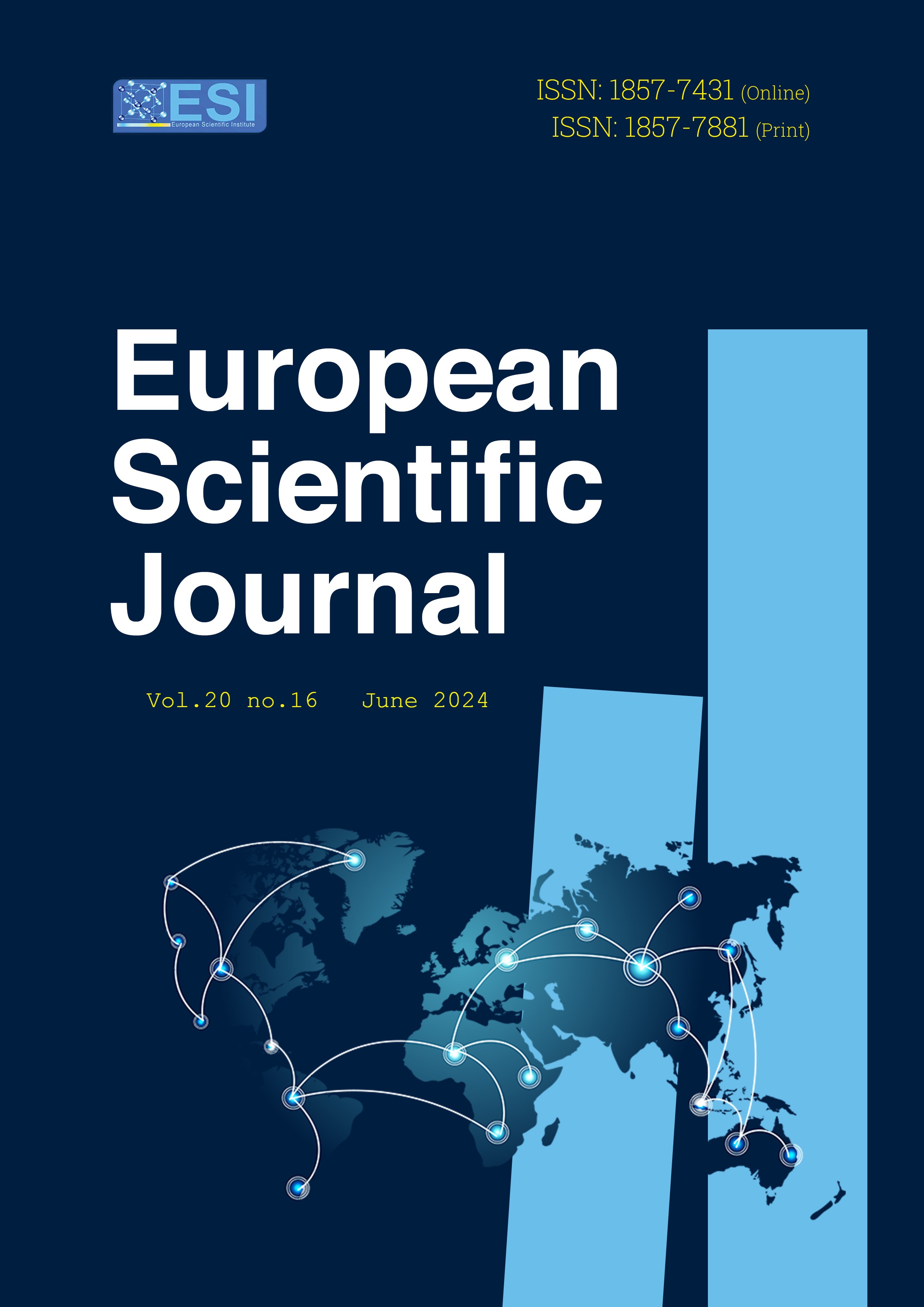The development of Critical Thinking Skills during Practical Training: The Perspectives of Pedagogical Supervisors and Sports and Physical Education Trainees
Abstract
In the Republic of Congo, initial teacher training has both a theoretical and a practical dimension. Theoretical training takes the form of theoretical courses within the training institution itself. Practical training, on the other hand, takes place in professional settings (secondary schools). This comparative study consisted of identifying the conceptions relating to the development of critical thinking by educational supervisors and by student-trainees. Inscribed in a qualitative methodological approach, this research was based on Eric Lavertu's (2013) conceptual approach to the development of critical thinking in internships. Eight (08) educational supervisors and nineteen (19) student-trainees voluntarily participated in the study via three focus groups. The results obtained, following a content analysis of the corpus collected, reveal several didactic-pedagogical devices for the development of student-trainees' critical thinking, both according to the perception of pedagogical supervisors, and also, according to that of student-trainees. As didactic-pedagogical devices, educational supervisors identify three: the communication strategies highlighted by the supervisor, the climate of exchange established by the supervisor and the attitude of the supervisor. The student-trainees, for their part, emphasize the educational supervision environment, the attitude of the supervisor and the attitude of the student-trainee. Thus, to promote the development of critical thinking among student trainees, the measures mentioned specify that the supervisor must implement a pedagogical approach to supervision anchored in a social-constructivist paradigm to support the development of the student, using a reflective approach in support. In addition, these mentioned systems emphasize the importance of placing the student at the center of their learning by making them a real actor in their development.
Downloads
PlumX Statistics
References
2. Borges, C. & Lessard, C. (2005). Enseigner autrement à l'école secondaire? L'annuaire du Québec 2005, 329-334.
3. Bourgeois. E. (2013). Commitment in training. In A. Jorro (Ed.), Dictionnaire des concepts de la professionnalisation (pp. 95-99). Louvain-la-Neuve : De Boeck Supérieur.
4. Brauer, D.G., & Ferguson, K.J. (2015). The integrated curriculum in medical education. AMEE Guide No. 96. Medical Teacher, 37(4), 312-322.
5. Campanale, F. (2007). Reflective analysis and self-evaluation in teacher training: What relationship? In A. Jorro (Ed.), évaluation et développement professionnel (pp. 55-75). Paris: L'Harmattan.
6. Daniel, M.-F. (2018). Developing dialogic critical thinking: an essential tool for students and teacher professionalization. In Georges Kpazaï (Eds), La pensée critique expliquée par des didacticiennes et des didacticiens de l'enseignement supérieur (2° édition) (pp.237-248). Montreal: Les Editions JFD.
7. De Ketele. J. (2013). Professional engagement: attempts at conceptual clarification. In Jorro & J. De Ketele (Eds), L'engagement professionnel en éducation et formation (pp. 7- 22). Louvain-la-Neuve: De Boeck Supérieur. https://doi:10.3917/dbu.jorro.2013.01.
8. Farías, G. M. y Ramírez, M. S. (2010). Desarrollo de cualidades reflexivas de profesores en formación inicial a través de portafolios electrónicos. Revista Mexicana de Investigación Educativa, XV (44), 141-162.
9. Forges, R (2013). Étude des manifestations d'une pensée critique visée, stimulée et manifestée, chez des étudiants en formation initiale en enseignement de l'éducation physique et à la santé (Unpublished doctoral dissertation). University of Montreal.
10. Forges, R. Borges, C., & Daniel, M.-F. (2018). Professional competencies and types of reflexivity. In Georges Kpazaï (Eds), La pensée critique expliquée par des didacticiennes et des didacticiens de l'enseignement supérieur (pp.53-76). Les Éditions JFD.
11. Fredricks, J. A., Blumenfeld, P. C. & Paris, A. H. (2004). School engagement: Potential of the concept, state of the evidence. Review of Educational Research, 74(1), 59-109. https://doi.org/10.3102/00346543074001059.
12. Gervais, C. & Desrosiers, P. (2005). L'école, lieu de formation d'enseignants: questions et repères pour l'accompagnement de stagiaires. Québec : Presses de l'Université Laval.
13. Lavertu, E. (2013). Assessing critical thinking in a nursing practicum context: proposal for an assessment tool. Master's essay in education, Université de Sherbrooke, Quebec.
14. Liu, J., McBride, R.E., Xiang, P., & Scarmardo-Rhodes, M. (2018). Physical Education Pre-service Teachers’ Understanding, Application, and Development of Critical Thinking. Quest, 70(1), 12-27. https://doi.org/10.1080/00336297.2017.1330218
15. Moon, J.A. (2004). A Handbook of Reflective and Experiential Learning. Theory and Practice. London y Nueva York: Routledge Falmer.
16. Nziengui Nsonde, V.B., Mandoumou, P., & Kpazaï, G (2022). La pensée critique en supervision pédagogique des stagiaires en éducation physique et sportive: nature, rôle et modalités de son développement selon des conseillers pédagogiques. Assempe 13(4), 42-58.
17. Parent, S. (2016). From motivation to engagement: a multidimensional process linked to your students' success. Pédagogie collégiale, 27(3), 13-16. https://eduq.info/xmlui/bitstream/handle/.
18. Rousseau L.-J (2005). Terminologie et aménagement des langues. Langages, 157, 93-102. Paris: Larousse.
19. Yelon, S. L. (2004). Teaching and learning in the language classroom. In E. Hinkel (Eds), Handbook of research in second language teaching and learning (Vol. 1, pp. 613-634). Mahwah, NJ: Lawrence Erlbaum Associates.
20. Yuan, R., & Liao, W. (2023). Critical thinking in teacher education: where do we stand and where can we go? Teachers and Teaching, 29(6), 543-552. https://doi.org/10.1080/13540602.2023.2252688
Copyright (c) 2024 Beralex Vianney Nziengui Nsonde, Paulin Mandoumou, Georges Kpazai

This work is licensed under a Creative Commons Attribution 4.0 International License.








